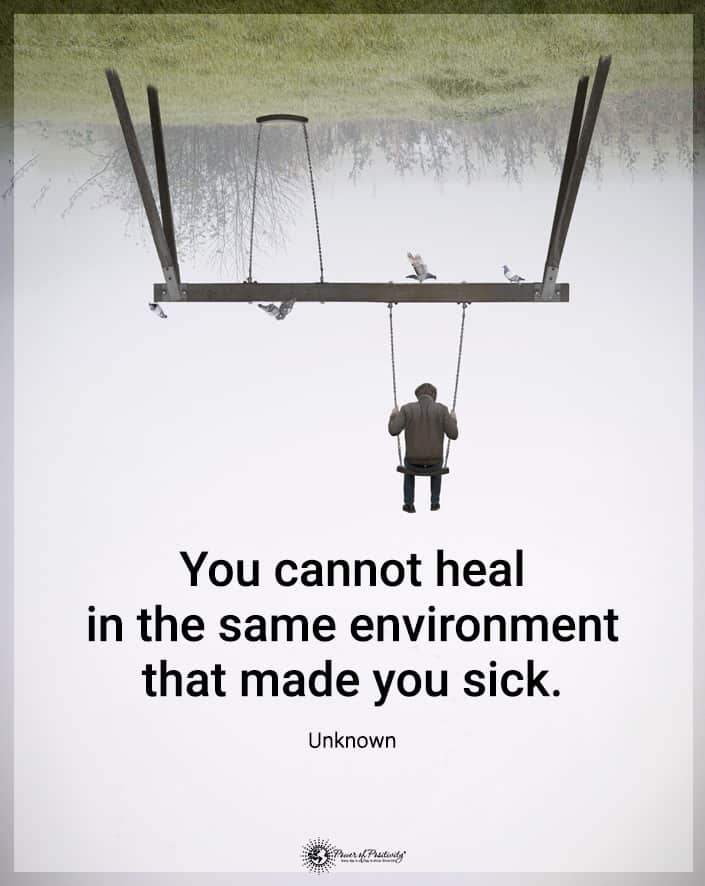Adult children becoming estranged from their parents isn’t uncommon, but it remains a tricky topic to discuss. Everyone has different thoughts regarding children and parents who don’t speak, so it’s easy to slip up and say the wrong thing. If you don’t fully understand the situation, refrain from commenting on the subject entirely.
However, you can’t ignore people or pretend everything is normal, either. The subject will come up, and it’s hard to know what to say when you want to show empathy. No matter what your opinion is on the subject, there are some things you should avoid saying entirely.
If you have never been estranged from a parent, it’s impossible to understand how someone feels. Even if you have been in a similar situation, you can’t know how another person’s experience differed from yours. You never know what someone has been through or what their parent did, so it’s best to avoid judgment.
Fifteen Things You Shouldn’t Say to Someone Estranged from Their Parents.
Even if you support the decision of someone estranged from their parents, you must be careful about what you say. You might think something will bring them comfort or help them out, but it might make them feel worse. If you know someone who doesn’t speak to or see their parents, remember to be careful about what you say.
1. I could never cut my parents out of my life.
While this statement might be true, it’s a little insensitive. Cutting your parents out of your life isn’t easy, and this comment makes it sound like it was a light decision. They may also think that it implies they did something wrong.
Saying you could never do it can make it seem like nothing is worth making this difficult decision. Avoid comparing the other person’s situation to your life because you never know their family problems.
2. They want what’s best for you, even if you disagree.
While a parent thinks they know what is best for their child, it’s not up to them to decide their child’s life path. Sometimes a parent will be selfish and try to live vicariously through their child, even at the expense of their child’s happiness. While this isn’t always harmful, there can be consequences for the child along the way.
If a parent is so disappointed by their child’s life choices, they might take it out on the child. When they do, it can cause the connection to fall apart. Since this is the case, you should avoid defending the parents’ behavior when speaking with the estranged person.
3. You’re going to regret this estrangement when they die.
People who cut off their parents thought about regret when they chose. They still decided that walking away was the better option. If you want to support them, you must avoid saying things that could make them feel guilty.
You might think you’re being helpful, but you’re only pushing the idea of cultural disapproval. Chances are, the adult child doesn’t regret their decision to cut their parents out. Instead, they regret that their parent couldn’t do what was necessary to alter the connection.
4. Since you cut out your family, you’ll probably do the same to me.
This statement is not only insensitive, but it’s rude. Someone’s decision to leave their parents doesn’t come lightly, and this comment is hurtful. Not only will it hurt them, but the statement isn’t true, either.
Just because someone stopped talking to a family member doesn’t mean they won’t love you unconditionally. Before an estrangement occurs, there is typically a long and complicated relationship. Don’t make someone feel like you don’t trust them or like they have to prove anything to you.
5. You turned out just fine, so they can’t be too bad.
While you might think that this is a compliment, it’s the furthest thing from one. Not only does it invalidate the person’s experience, but it also gives their parent credit for what the child has accomplished. Consider whether or not the child turned out so well is because they chose to walk away.
6. Explain what they did that was so bad.
No one should have to explain themselves to you, especially concerning something so personal. You don’t need to know why someone walked away, and you don’t have a right to know. Those who cut out their parents likely don’t enjoy discussing their experiences.
Additionally, this statement implies that the person needed permission to end the relationship. Regardless of their reasoning, they chose to walk away from a toxic connection and require no explanation.
7. You should give them some grace because nobody is perfect.
This statement is another one that invalidates the person’s feelings and experiences. Chances are, they didn’t cut their parents out of their lives for a minor grievance, so don’t pretend to know. It isn’t a situation related to imperfections but about toxicity and healthy connections.
8. You only get one set of parents, and look at all they did for you.
Please don’t point out that someone only gets one set of parents because they already know that fact. Additionally, don’t mention what their parents did for them, either. Parents are legally required to feed, shelter, and clothe their children, so you can’t count those as moments of going above and beyond.
Many adult children walk away from their parents for reasons related to their childhood. They may have been deprived of love, touch, and learning opportunities that would have allowed them to thrive. Additionally, they could have been subject to abuse you don’t know.

9. You can’t cut them out–they’re your parents.
You must avoid this phrase whether someone is estranged from one or both parents. Being a parent doesn’t give someone a free pass to cause toxicity in their child’s life. Family problems go much deeper than people let on.
It’s also important to note that the estrangement likely took longer than it would have if they weren’t the child’s parent. The child might not have ever put up with toxic situations for as long as they did if the abuser hadn’t been family. Reminding them of their parents in this way won’t help the situation.
10. Stop living in the past and move on.
When someone stops talking to their parents, it doesn’t mean they live in the past. Instead, it shows that they have already moved on from the past. They chose to leave a toxic situation and move forward positively.
This statement isn’t helpful, and it is inaccurate. Everyone has the right to move forward at a different pace. Everyone can decide who plays a role in their present life, so leaving the parents behind might be how they move on.
11. Maybe you should try forgiving them.
This statement is frustrating because the child has often forgiven their parent. Estrangement comes after many instances of negativity, so you shouldn’t imply that the child didn’t try. They can only forgive someone so many times before they cut them out for good.
12. Your parents did their best given what they had.
Don’t make excuses for a parent that is estranged from their child. They could have provided their child with the love and acceptance they needed, even if the parents didn’t have much to work with. There is no reason for neglect, mental or physical abuse, or other toxic behavior.
13. Your parents love you more than anything.
This statement is another guilt trip that may or may not be accurate. While parents can love their children and still hurt or disrespect them, they might not love them at all. You shouldn’t be the one to say that they do when there is no way for you to know for sure.
14. Your life could have been worse, so maybe you should appreciate what you had.
Every situation could have been worse, but you don’t need to say it. When someone goes through a traumatic experience, comparisons to other problems are unnecessary. They are hurting regardless of you thinking it could have been worse.
Additionally, walking away from their parents doesn’t mean the person didn’t appreciate anything. Instead, it means they need to make healthy decisions for their life.
15. Not speaking to your parents is selfish.
Children that cut their parents off have usually had enough of their parent’s lack of respect. The child has likely tried to set boundaries, offer forgiveness, and build a healthier relationship. Putting themselves first and doing what is best for their life is never selfish.
Final Thoughts on Things Never to Say to Someone Estranged from Their Parents
Adult children estranged from their parents don’t have an easy decision. They’ve likely been hurt repeatedly by their parents and decided to leave the toxicity behind. Don’t say things that’ll make them feel bad about the situation.
Avoid assuming that you know what happened in the estranged person’s life. Even if they’ve given you a little information, there is no way for you to know the full extent. Avoid giving your opinion or saying hurtful things; focus on showing empathy instead.




















